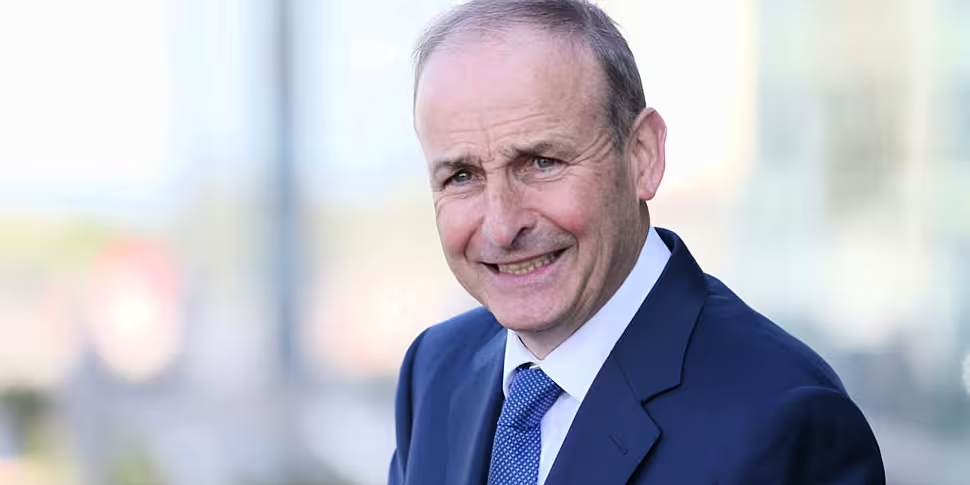The Taoiseach has said that Level 3 measures can work to slow the spread of COVID-19 but he is not ruling out moving the country to Level 4 in the coming weeks.
Micheál Martin said that he is "very worried" about the latest coronavirus figures, with three further deaths and 1,012 new cases confirmed yesterday.
In an interview with Newstalk, he said the Government would not be afraid to move up the level of restrictions but that he was conscious of the impact the move would have on people and businesses.
He said: "We're all very worried about those increasing numbers and those numbers would have originated when the country was at Level 2.
"Moving to Level 3 is significant because it imposed a greater level of restrictions on many people and society, and as we know, particularly on our hospitality sector.
"It will take behavioural changes on our behalf to make it work, it can work but it can only work if we all behave as if collectively have the virus.
"Moving to Level 4 is very, very severe and will create a lot of damage, a lot of unemployment.
The Taoiseach added: "We know from the WHO that lockdowns essentially hurt the poor the most and those on the margins and those on low incomes and that's something we have to take into account as a government.
"We will do what our overarching objective is to protect people, but I don't underestimate the severity of Level 3 in itself if properly enforced and adhered to."
Mr Martin said that restrictions had worked to reduce the number of cases in Laois, Offaly, and Kildare and that there were indications that numbers were stabilising in Dublin.
He said time will be needed to see the impact on the ground of Level 3 restrictions nationwide.
"We're ruling nothing out, because the plan provides for moving up levels.
He said he wanted to give people the opportunity to try to slow the spread of the virus by adhering to the guidelines and that moving to Level 4 would lead to the closure of many businesses.
He added that there was "growing evidence" that many shuttered businesses would not be able to reopen a second time and that has to be taken into consideration.
Circuit breaker
His comments come as the Tánaiste has admitted a "short, hard lockdown" could be needed to get COVID-19 back under control.
Leo Varadkar told the Sunday Independent it would be an "experiment" but could work.
The Taoiseach said that Level 4 would in itself be a circuit breaker and it may not be a short one.
He said Mr Varadkar was not necessarily advocating for a circuit breaker approach, rather he was "teasing out the issues" around such a measure.
Mr Martin said: "We would not be afraid to move up a level if we have to, but we are very conscious the impact moving up a level will have on unemployment, will have on the poor and those on very low incomes."
If we all change our behaviours and work together we can make Level 3 work, protect lives and livelihoods, show that we can contain the virus and prevent its growth.
— Micheál Martin (@MichealMartinTD) October 11, 2020
He said the Government was not issuing mixed messages and that while Level 3 needed to be given the opportunity to work, they were not ruling anything out in continuing to monitor the numbers and moving up levels if needed.
On the coming months, the Taoiseach said: "We'll have a different Christmas this year, it won't be a normal Christmas because the virus thrives when people gather.
"We can't seal our borders, as a country we're very connected to Europe, so there are limitations to the elimination of the virus."
He added: "I think we need to be very clear about the definitions of what constitutes a circuit breaker.
"In my view, a lockdown is very close to what we have in Level 4, it's not a full lockdown but it is a full lockdown in Level 5."
Schools
Mr Martin also said he wants to see schools kept open and that returning one million people to schools, including students, teachers and other staff, "illustrates what is possible on a societal level to keep the numbers down".
Meanwhile, a Government Minister said there is "no plan" to extend school closures at mid-term as part of measures to tackle COVID-19.
It had been mentioned at Cabinet earlier this week that closing them for two weeks as opposed to one at Halloween could help slow the virus down.
Junior Minister at the Department of Education Niall Collins said all of the public health advice shows schools aren't a major factor in the recent surge.
Mr Martin said extending the mid-term break was never really considered.
Additional reporting by Stephen Murphy









